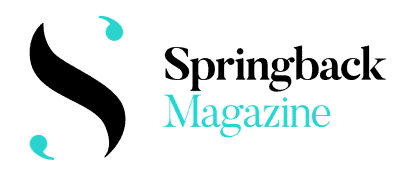Contrary to popular belief, the contemporary dance microcosm is just as impacted by patriarchal values as the rest of the world. However female makers are gradually emerging from the shadows and painstakingly given more opportunities to share their work. In 2019, it’s exciting to see that the programne of ImPulsTanz in Vienna, while still predominantly cis-gender and white, features a balanced number of works by both male and female makers. In an ideal world we would be beyond binaries but for now let’s celebrate progress and give focus to six works made by women this year.

article
Six of their sex: female dancemakers at ImPulsTanz 2019

In her new work Tank, Doris Uhlich takes us back to the future. Inspired by sci-fi blockbusters and 1950s Test Tube Girls comic books, she submerges herself in a smoke-filled life-size glass vessel. Reminiscent of cinematic classics like Alien or The Shape Of Water, this enigmatic tube gradually reveals its hazardous content: first a bunch of brown hair caresses the transparent surface, followed by a sweaty palm, and soon an entire pulsating body comes smashing against the glass wall. As Uhlich shakes to the beats (by electronic media artist Boris Kopeinig), her muscles flex and her naked flesh ripples, creating the masterful illusion of a floating body. ‘Robots don’t sweat’, she reminds us, her own body drenched and throbbing, and when she finally exits the tank we are confronted with her blatant corporeality and our voyeuristic tendencies: it’s much easier to objectify someone trapped behind glass than to indulge in their vulnerable humanity. Tank intelligently juxtaposes present and future, questioning the place of the body in an ever-evolving technological world.
Mira Kandathil and Annina Machaz also question our upcoming fate in Ask the Oracle: The Future is Now, by looking at what a contemporary oracle may resemble. Galvanising Greek mythology, they channel the seers Cassandra and the priestess Pythia of Delphi, inventing a phantasmagorical world where they simultaneously become TV game show hosts and astral deities. In an explosion of red glitter and fake blood, Kanthadil and Machaz engage in incomprehensible yet riveting rituals. They constantly flirt with the ungraspable, piling up chimerical symbols upon art history references, titillating our incurable longing for certainty. We are left with prophecies such as ‘Shit happens’ or ‘Google my mind’ as well as forms to fill in after the show, with questions for the Oracle. I am still waiting for my telepathic response.
In BLINK – Mini unison intense lamentation, Michelle Moura, accompanied by Clara Saito, offers a radically different perspective on the idea of vision. Using the act of opening and closing one’s eyes as a starting point, the Berlin-based Brazilian choreographer plays with binary oppositions: two bodies gently undulate, opening and closing themselves and their eyelids, to a mesmerising accumulative score. Ecstatic faces morph into melodramatic masks in an instant, butt cheeks flash and the lights flicker into choreographed floor patterns. In the second half of the work the two performers hum and harmonise while their voices are electronically modified, keeping on with the restless transformation process. The sound grows louder into a cathartic build-up – and in the blink of an eye it’s gone, echoing the startling dynamics of the entire work.
Eyes-closed dancing also features in Claire Croizé’s Flowers (we are), where three dancers stumble blindly on stage to the sound of Matteo Fargion and his daughter Francesca’s two pianos, voices and synthesisers. While Fargion’s dainty reinterpretation of Bach’s music offers surprising versions of works such as the Well-Tempered Clavier or twisted extracts of the Goldberg Variations, there’s an unfortunate lack of contrast between dance and sound. The performers’ co-dependent relationship to the music renders the score frustratingly predictable instead of highlighting its richness: the trio of talented dancers seems to chase every single note with their steps, in a gesticulating rococo trance. Obscure narrative references to the biblical tale of Tobias and verses by Rilke further confuse this hectic tale, and by the time the five protagonists carol a hilarious song about JS Bach, we are no longer following the thread through this labyrinthine work.
A vase of fake flowers and her naked body covered in a piece of sheer neon-orange fabric. That’s all it takes for Teresa Vittucci to both embody and dismantle one of the most iconic feminine figures of all times: the Virgin Mary. In Hate Me, Tender Vittucci takes a close look at the myth of the immaculate conception and its tenacious influence on our society’s perception of women’s bodies and their purity (or lack thereof). From the very beginning, the Zurich-based Viennese choreographer, engages in her own performative miracles: with meticulous shifts of facial expression, she converts into a blushing bride, an agonising martyr or a sculptural pietà. One look at us and she’s suddenly the charming girl-next-door inviting us to sing along with her, chanting ‘you are pure ’cause you’re a virgin’. She throws a few plastic flowers in the mix, and Beyoncé’s epic twin pregnancy announcement springs to mind. Palm leaves turn into guns, and her skin-coloured high-heel boot becomes a make-belief vulva. She’s credible as both madonna and whore, as well as sex-ed teacher extraordinaire when she tenderly breaks down the myths of virginity, one scientific misconception at the time, graciously ripping apart the hymen as a symbol of chastity. The work is deeply layered with smart humour, audacious imagery and bold political statements, and Vittucci’s performance is, well, sort of divine.
The audience sits in two rows all around the stage in Juliana F May’s Folk Incest. One woman is hit by a spotlight; she begins to stutter, nervously repeating words, struggling to complete a coherent sentence. Smearing pink lipstick and eyebrow pencil all over her face, she’s both pathetic and clownish, her sudden Tourette-like bursts of anger bone-chilling. This first scene already addresses and subverts the topic of trauma: language is used to fragment words and memories, interlacing text with absurdity and poetry. Four more women enter the room, and they all embark on an intricately composed score, where movements and text are juxtaposed with scrupulous detail. Power-walking imaginary dogs or leaping across the stage while putting on denim jeans as cardigans, the five performers simultaneously repeat discombobulated and intimate stories about adults and toddlers, Nazis and Jews, modifying the words ever so slightly with each recurrence. Abruptly interrupting this complex polyphony, they all harmonise ‘Don’t fucking do it’ while moving in a multi-directional unison. Think rape-choir meets trauma aerobics meets creepy nursery rhymes. A mellifluous healing circle appears and vanishes within the rigorous cacophony, solos emerge and dissipate, until they finally all get down on one knee and offer a perfectly synchronised Shakespearean recitation of the whole obscure story they’ve been constantly manipulating in front of us. It is rare to watch works about trauma in general, and women’s sexual traumas in particular, that transcend pathos and transpose this violent experience into a creative space where irony and lightness can also appear. But what Folk Incest mirrors with absolute brilliance is the unfiltered complexity of traumatic experiences, and the way distressing memories are not set in stone but have a dynamic life of their own. May and her cast leave you shaken to the core, not because of their raw vulnerability – although that is there – but also because they manage to shift the discourse on a topic that too often is either grossly simplified or disturbingly romanticised. ●
ImPulsTanz – Vienna International Dance Festival









